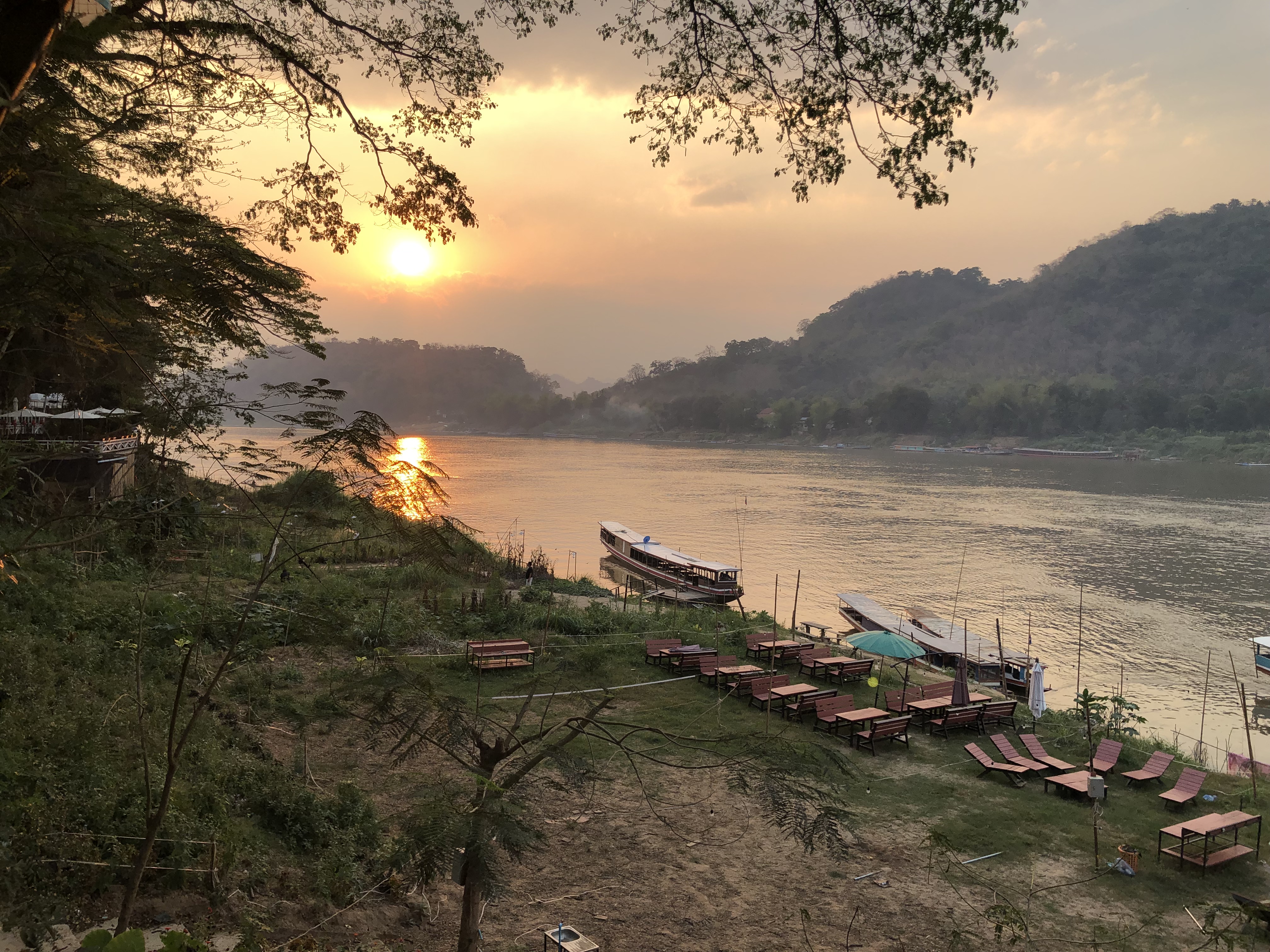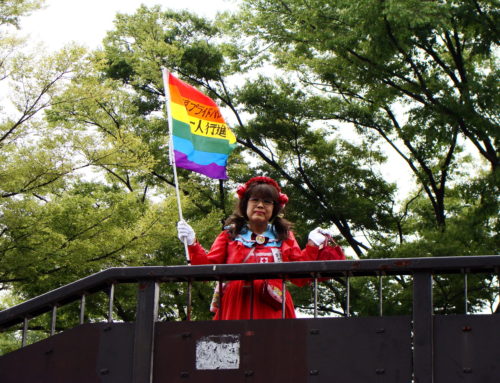
This is an older story from 20 years ago in Laos. It also won the People’s Choice Award from the Southeast Asian Travel writing Competition in 2010.

No, Thank You Laos
How many people can you feed with a 600 pound catfish I wondered as I walked down the deserted street in northern Laos. Somewhere, in the darkness close by, the mythical Mekong River snaked its way through the intense blackness, hiding the massive catfish and the largest population of gigantic species in the world.
It was just after 9:00 PM but there was no one else on the streets. I walked cautiously, afraid to disturb the romantic stillness in the air and the humming wildlife from the encroaching jungle. I was in Luang Prabang, the ancient capital of Laos and a UNESCO World Heritage Site since 1995.
Lost to a bygone era, the French inspired Indochinese houses surrounded me, converted to coffee and gift shops but still trapped in a memory of the past that attract nostalgic tourists in search of the Asia from grandfather’s stories. Latticed white balconies hung over the street as I moved farther down looking for signs of life. Nothing, no one was awake, doors were barred and windows shuttered. The only light came from an exposed light bulb dangling from a small overhang slightly ahead.
 Life was slow but predictable in Luang Prabang. The locals rise at 5:00 AM to offer rice and vegetables to the hundreds of brightly robed Buddhists monks who walk silently down the road each morning seeking alms. Nothing exciting usually happens in this small town, especially at night. As I approached the light bulb I noticed a crackling sound as blue sparks danced from the frayed, dirty wire. Worried, I watched for a few minutes before moving on, conceding that there was nothing I could do. Electrical safety is not a strong point of the region and as I took one last look behind me the bulb exploded and a jet of orange flame raced up the wire, quickly taking hold of the wooden eves.
Life was slow but predictable in Luang Prabang. The locals rise at 5:00 AM to offer rice and vegetables to the hundreds of brightly robed Buddhists monks who walk silently down the road each morning seeking alms. Nothing exciting usually happens in this small town, especially at night. As I approached the light bulb I noticed a crackling sound as blue sparks danced from the frayed, dirty wire. Worried, I watched for a few minutes before moving on, conceding that there was nothing I could do. Electrical safety is not a strong point of the region and as I took one last look behind me the bulb exploded and a jet of orange flame raced up the wire, quickly taking hold of the wooden eves.
I looked around frantically, forgetting that I was all alone, as the fire began to flare just above the wooden door to a small shop. “Bang, bang BANG,” I pounded on the rough door as splinters and paint chips flew in my face. The fire was spreading quickly as a short middle-aged man opened the door just enough to peek out.
“Sir, there’s a fire on your roof. Please come out!” I pleaded into a blank face. Behind him, through a small crowded store stocked with postcards and bottled water, I could see his family sitting on the floor watching television.
“Closed,” he said and shut the door abruptly. I knocked again, feeling the heat spread just above my head. The door opened again. His face was no longer blank as he shook his head and waved me away. His family, three generations packed together, looked concerned as a crazed stranger jumped up and down yelling. Just before the door slammed shut again I grabbed the father and pulled him outside by his shirt. Screams of protest erupted from the family inside.
The father struggled against me as I forced him onto the street releasing him just past the fire, which was spreading to the next building. He yelled, went limp and then rushed into the house screaming. The family streamed onto the street yelling at the top of their lungs. The cry was repeated and soon the whole town was awake as Laotians, young and old surrounded the house.
The town organized itself to fight the fire. There was no fire station, or water hydrants. A fire threatened everyone as the rows of wooden houses held each other up. Buckets of water were passed in lines from the houses across the street and others set off in search of fire extinguishers. Smoke, ash, and the screaming of babies choked the once silent streets.
A young man ran up the street with the first fire extinguisher as the crowd cheered. “Phsst…” nothing happened. One more try, still nothing. A second, and then a third extinguisher arrived with the same result. We worked harder at throwing water towards the second floor. Thirty minutes into the fire a fourth extinguisher arrived.
A sudden jet of white foam shot from the extinguisher to the delight of the crowd. Ten minutes later the fire was out. Just as suddenly as it began the people disappeared. Without a word to each other or to me, they gathered their buckets and went home. Doors shut in unison and before I knew it I was once again alone in the middle of the dark street. I was confused and hurt. I had just helped save a house, possibly a whole UNESCO heritage site from destruction. Where was my thank you, or at least the collective camaraderie that comes with a challenge overcome? I walked back to my hostel in a daze wondering what had happened.
I woke up at five in the morning with the rest of the town and walked back to the scene of the fire. The blackened wall was the only evidence of the previous night’s excitement. The family waited patiently in front of their store and home for the monks to walk by. One by one they placed spoonfuls of rice into the alms bowls of the silent monks. Neither side gave or sought recognition. When their rice was finished they returned home without a backward glance. The monks continued on without offering even the slightest recognition.
At that moment I realized it wasn’t the architecture or the Buddhist temples that offered a glimpse of an older Asia. It was the people of Laos, of Luang Prabang. They taught me, or rather reminded me, that you do the right thing because it’s the right thing to do. Good is its own reward, something we’re quick to forget in our media hyped, competitive modern society. It’s a lesson I have not forgotten, so thank you Laos, if you permit me to extend a bit of my own culture to compliment yours.
[photos by: Hanoi Mark]




